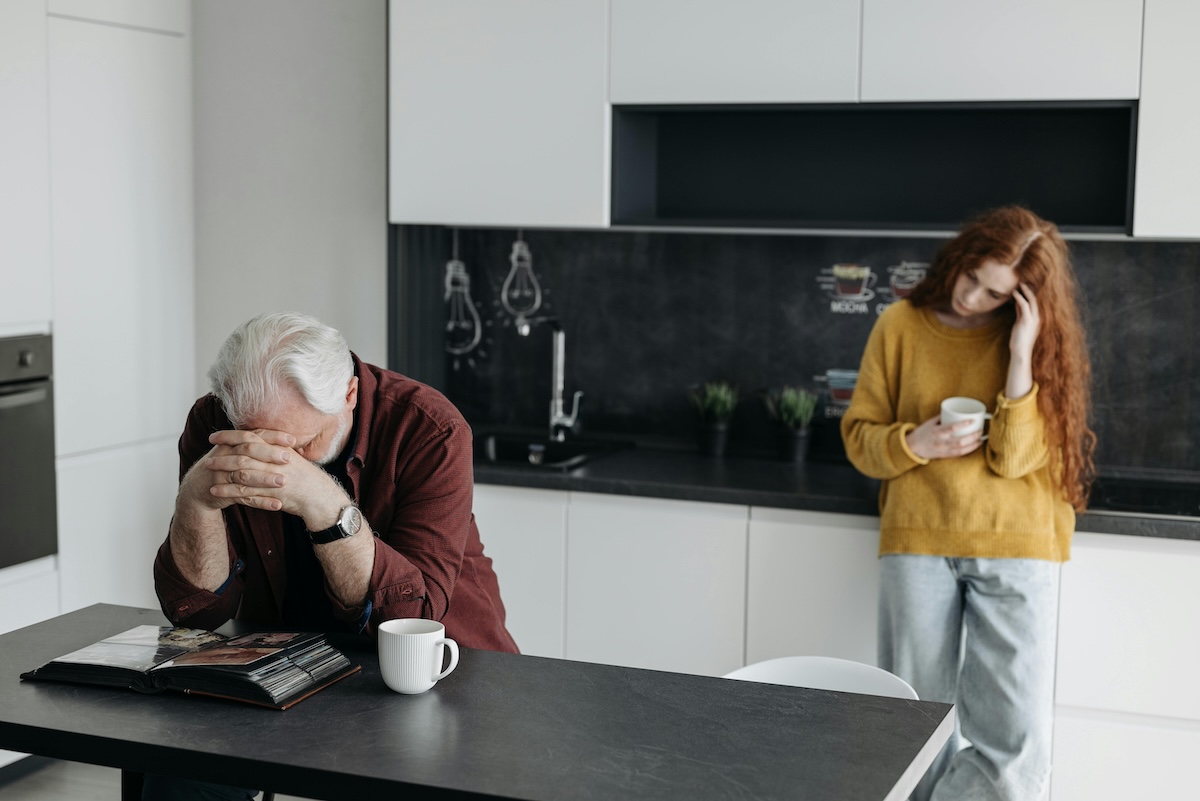

When I walked out of treatment, I was clean, but I was far from okay.
I had spent years digging myself into a hole, and a few weeks in a facility had helped me stop digging. But now I was standing at the bottom, looking up, wondering what came next. There was no counselor watching over my shoulder anymore. No set schedule. No "safe bubble" of recovery. Just real life — messy, loud, relentless.
And I’ll be honest: I didn’t know how to live it.
I think a lot of people can relate to this, but when I walked out of treatment, I wasn’t ok, I wasn’t ready, and I had no idea what I was doing. Maybe I slipped through the cracks, or maybe I didn’t do the work, but for me, treatment kept me from drinking for long enough to clear my head. But it didn’t give me tools, I didn’t have a plan, and I felt more lost than on the first day.
There was a deep ache I didn’t know what to do with. It was loneliness, but also something bigger, a disconnection from everything. People. Purpose. Peace. And it was creeping back in, fast.
Here’s the thing, in my opinion, going to a residential treatment program is vital, but not for everyone. There are so many great programs that are going to set you up for success. I think, for me, I just wasn’t ready. I wasn’t willing to hear that I was broken, I wasn’t willing to admit I had a problem, and I definitely wasn’t willing to do the work.
If you are going to go to treatment, make sure you are ready. You can’t nap your way through it. If you commit to it, it will change your life.
Everyone kept saying, “You need a community.” That sounded nice. I just didn’t know where to find one. I wasn’t about to sit in a church basement with strangers reading out of a book that felt older than dirt. That’s what I thought AA was, some outdated ritual for people who weren’t like me.
So I tried to dabble with AA, I’d show up to a few meetings here and there. I’d sit in the back, put my hood up, and count the minutes till I could duck out the back door. I never gave them a chance but I thought I was fooling everyone. I white-knuckled a lot of days. And I’d stay sober for a while.
But something was missing. And deep down, I knew it.
.webp)
It took a few stumbles and one really bad relapse for me to finally walk into an AA meeting. I was out of excuses. I needed help, I knew it, and it was the only thing I hadn’t really given a chance to. On top of that, I had someone really important to me set some healthy boundaries. I wasn’t going to be a part of their life unless I worked a program, did something different, and got to work.
I don’t remember what was said that night. But I do remember it hit differently, for some reason, this time I wasn’t against hearing other people tell a story I could relate to. These people weren’t pretending. They weren’t selling anything. They were just real.
And for the first time in a long time, I got uncomfortable and I raised my hand and said, “I need help”. That night I walked away with my first sponsor.
I didn’t love it at first. I sat in the back. I left before the prayer. I definitely didn’t speak and there was still a part of me that was “not like them”.
But I kept going back.
There was something deeply human about those rooms, a shared pain, a shared hope. No one cared what I did for work or how long I’d been sober. They cared whether I was okay today. And that mattered more than I expected.
Over time, I stopped resisting. I stopped judging. I started sharing. And that’s when everything shifted.
Once I let go of the idea that recovery had to look a certain way, I started to discover my way. Yes, AA played a huge role. It still does. The steps gave me structure. The people gave me hope. But what really transformed my recovery was building a life around healing, understanding, and authenticity, not just the program.
I started to explore what sobriety meant beyond not drinking. I leaned into my faith, working on myself and healing what was broken within. I started asking deeper questions about identity, purpose, and healing. I wasn’t just surviving anymore, I was rebuilding. I always say I was like an onion, layers of protection, coping, and identities. It took years of work, a lot of hard times, and tough conversations, but I found myself, a version of myself that loved life and was happy.
Something unexpected happened when I started helping other people in recovery: I grew.
At first, I was shy. I didn’t know everything about being sober, so I definitely didn’t know how to tell someone else to be sober. I still remember when I became proud of my recovery, my sobriety, and the life I had rebuilt. I had an opportunity to share my story and write a letter to my addiction. This was going to be on a live stream, on social media, and out for everyone to see. Needless to say, I was nervous, but in this, I found strength. I gave in and released the narrative that my story wasn’t good enough or that I didn’t know enough. I just told my story. I'll never forget the outpouring of support, the appreciation, and the stories of hope that I gave people.
I realized that every story is different, and it wasn’t up to me to decide if I knew enough or if my story was “powerful enough”. I found that for me, giving back was about creating space. Creating space where no one is alone, you don’t have to recover in the shadows. For me, telling my story is how I give back. Picking up the phone and telling someone, “I get it, I’ve been there”. Helping others isn’t always about getting them to a meeting, sponsoring someone, or driving them to treatment. Sometimes it is as simple as getting back on that level with them, relating to them, and letting them know we’ve all been there.
If you’re newly sober and struggling to find your footing, I want to tell you what I wish someone had told me:
Seriously. You don’t have to have a plan. You just have to stay sober today. And maybe tomorrow. And maybe find one or two people who get it. That’s enough.
I did. And it still saved my life. Be curious. Be open. Sit in discomfort and see what happens. You might be surprised.
Your path won’t look like mine. And that’s okay. Take what works. Leave what doesn’t. Keep searching until something clicks. And when it does, hold onto it with everything you’ve got. Listen to the success of others, you'll pick up on the commonalities.
Recovery isn’t just about staying sober. It’s about building something beautiful out of the rubble. It’s about becoming someone you actually want to be. And it’s possible, I promise.
I resisted the community. I resisted the steps. I resisted the idea that I needed anyone. I resented the idea that my journey had to look like everyone else's. Surrender to the process. There are commonalities among all stories of sobriety. There’s work, surrender, change, and more than anything, very few people did it on their own. If you’re in early recovery, keep showing up. Keep reaching out. Keep doing the next right thing. And if you’ve been on this path for a while, maybe it’s time to turn around and help someone else take their first step.






















